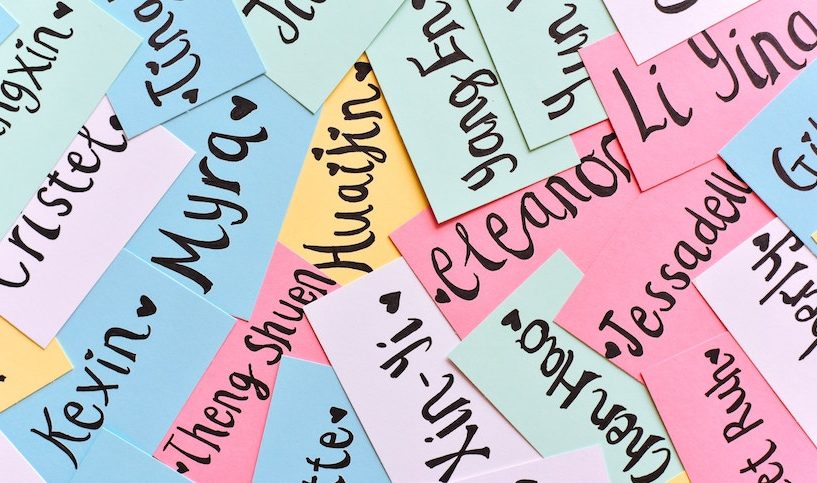Riddle me this: What, in essence, belongs to you, but is used by others a lot more than you use it?
Once upon a Mortal Kombat comic book, this riddle was the key to unlocking infinite power. The answer, in case you are still stumped, is your name.
Granted, for the first few years of life, we do not go by our name (unless we are in trouble, and it is called out in full), it is always a ridiculous pet name beloved to our parents, grandparents, relatives, and friends or all of the above. It is only once we start to understand the power of our names that we really take ownership of them.
The first confirmation of our identity is our name on our birth certificate. It is what serves to differentiate us from the numerous other loud, crying, adorably cute babies. When we first learn to grasp a pen, the first thing we write is our name. As we grow slightly older, we begin to doodle it, making characters out of it. Undoubtedly we will go through a phase where we wish to change our names (early on, if it persists, seek professional help) to something we saw on TV (for me personally it was Jason, after Jason Bourne, I was around 4 at the time, and no, not the version played by Matt Damon).
Struggles will continue. The order in which your name is written will matter. Which name gets mentioned and which is forgotten will matter. For the entirety of my life (to this very point of writing this article) my name is persistently incorrectly written as Nasser, on all forms of documentation and in pronunciation, despite my arduous indignation.
Gradually, our name grows on us. We learn to love it, cherish it, even walk around the house beating our chests and pronouncing it aloud to no one in particular. It is at this point of acceptance that a seismic shift in cosmic powers occurs to throw a proverbial monkey-wrench our way. And depending on which side of the globe you are from, the situation will vary. However the result is the same, as you will have to accept a change your to your name.
In the West, the main reasons behind changing your name are if you’re entering witness protection, or if you get married (if you’re a woman). Women may change from their maiden name to either their husbands’, or a hyphenated portmanteau of sorts, or they will keep their maiden name as is (right on, sister).
In the East, specifically the Middle East, we believe in equality for all. So if you decide to get married, the woman need not change her name at all, initially. It is only when the stork comes to visit that they bring with them a new identity (witness protection, remember?) along with a bundle of joy for the parents. Henceforth they shall forever be referred to as Bu-(father of…) and Um-(mother of …). It gets tricky, if your first child is a girl, you use her name, if you have a son afterward, you change to his name. If your first child is a boy, you’re all set, that is your new identity.
It was not until I took my child to a nursery and got called Bu-So-&-So by the receptionist that it dawned on me, the little brat is stealing my identity!
It was a stark realization with vast writing implications. I had accomplished so much (in my humble opinion) as myself, I suddenly remembered opening my very first bank account and signing my name for the very first time at the age of 11. I remembered how I loved the pointy edges of all the letters of my name and how during my first job I signed my name in full on every journal entry (only to realize how time consuming it was and then I just used my initials) and now, all of a sudden, my crowning achievement that redefines me is my offspring (not the band)? Am I now legally required to declare this to the authorities? Is there some sort of form I am required to fill out, with pictures? Some parents run at this with reckless abandon, voluntarily updating their social media handles (imagine if it were actually required, whereby Facebook and Instagram say something like, congratulations! We’ve noticed that you are a new parent, would you like to update your name now or wait a short while longer?).
We all dream of achieving self-actualization, and not merely riding on the coat tails of our fathers’ or family names (one would hope). Hence, we should not be guilty of doing the same with our offspring’s name.
For more on Ayman, follow him on Instagram @lordaymz. Photo by chuttersnap on Unsplash








